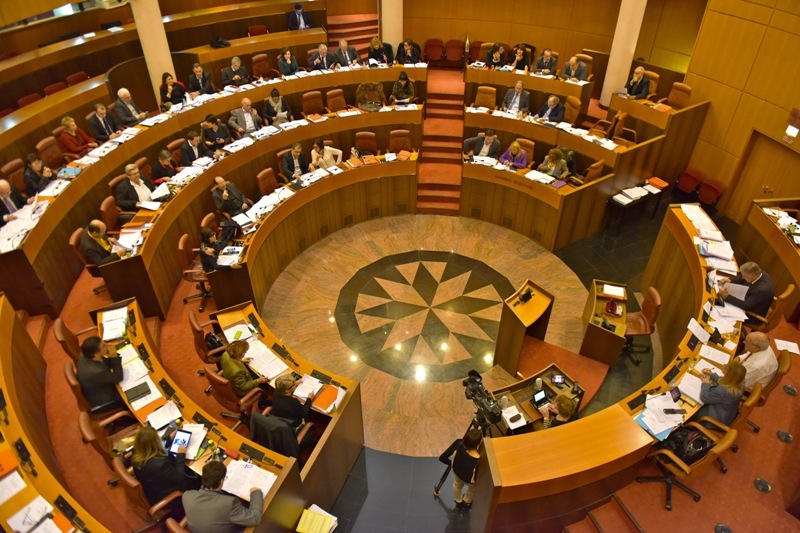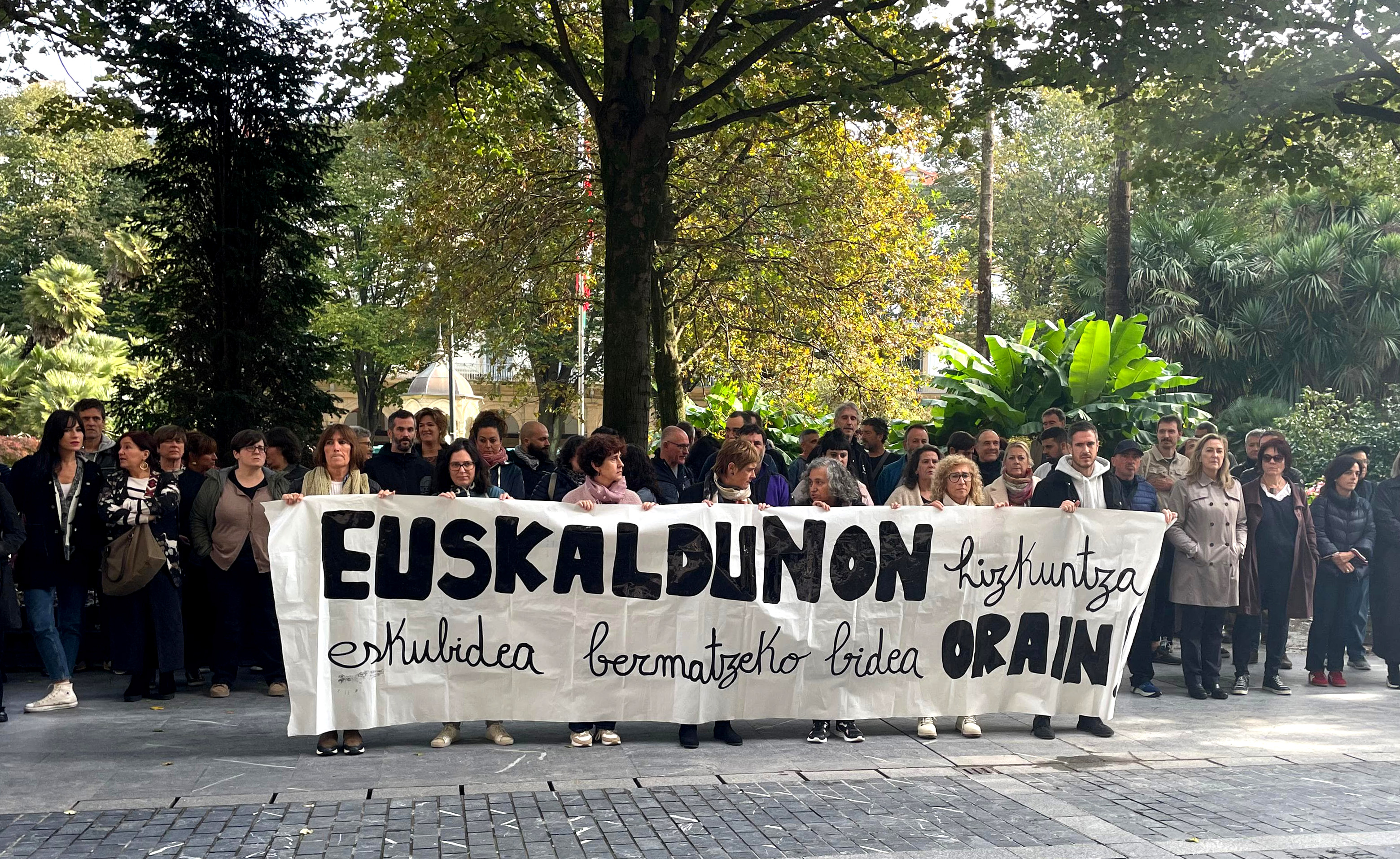The Council, ELA and LAB propose measures to bring the Basque public administration into the Basque Country for fifteen years
- Concrete contributions to the Decree being prepared by the Basque Government. Nine bases have been established for the Euskaldunization of the Public Administration in “concrete and feasible deadlines”. Its objective is to guarantee the linguistic rights of citizens, both users and workers.

On Monday, the Basque Government, in the process of drafting the Basque Government Euskaldunization Decree, presented the concrete proposal made by the Secretary General of the Euskalgintza Council, Paul Bilbao, the ELA Secretary General, Mitxel Lakuntza and the LAB General Coordinator, Garbiñe Aranburu. They stress that the proposal has the “broad majority support” and the “basic consensus”.
They have defined the path of the Euskaldunization of the public sector, divided into nine measures, with “concrete and feasible” deadlines. They want the Basque relationship with the citizens to be guaranteed in five years’ time and within fifteen years they want to guarantee the minimum knowledge in Basque in all the jobs of the Administration. Two fundamental rights would thus be ensured: “that Euskaldunes have access to the Basque service” and “that Basque speaking workers can work in Euskera”. Bilbao recalls that it is the right time to make the changes: “We have to bear in mind that in the coming years half of the public employees will retire, and this generational change is an opportunity to euskaldunify the administration, with a process of transition that encompasses all the staff”.
One of the measures of this process is the definition of the necessary linguistic training of the workers and, in this connection, the creation of circuits in Euskera (chain of services for the care of the citizens in Euskera) and units (to ensure that the labor relations are in Euskera). They also stress the need to “overcome” the system of calculating public jobs with a linguistic profile according to the index of preceptivity. Otherwise, “there will always be the possibility of access to the personal public sector that lacks the necessary language skills. And the Euskaldunization of these workers will cost an extra cost,” explains Lakuntza.
Beyond the linguistic profile
In the proposal, the agents have also put in place sound training programmes for the Euskaldunisation of workers, as well as measures for job exchanges and for new calls. Aranburu recalled that “the oldest and most bilingual generation will be those who are now going to jump into the world of work (with a knowledge rate greater than 80%), so he considered it essential to have at least profile B2. On the other hand, the consequences of non-compliance with the mandatory date and the possibilities of exceptionality are noted, clarifying that “they are willing to keep the staff of the Administration in their jobs”.
The three actors also agree that the promotion of worker stability is an appropriate measure: “Decent working conditions will also be necessary: temporality is an obstacle for the Basque Country in the processes of Euskaldunization of the administration, especially when temporality is 40% in the administrations of Hego Euskal Herria,” said Lakuntza.
Finally, they warn that the hegemonic language dominates “with power and resources” and that, consequently, “if the criteria for the use of the language are not regulated, the hegemonic language will always prevail”. They call for criteria to prioritize minority language: “The accreditation of the linguistic profile is of little use if this staff does not carry out their work in Basque”.
Gabonetako argiak pizteko ekitaldia espainolez egin izanak, Irungo euskaldunak haserretzeaz harago, Aski Da! mugimendua abiatu zuen: herriko 40 elkarteren indarrak batuta, Irungo udal gobernuarekin bildu dira orain, alkatea eta Euskara zinegotzia tarteko, herriko eragileak... [+]
The Council of Euskalgintza is warning of the linguistic emergency we have been experiencing in recent weeks. Several years have passed since the beginning of describing the situation of the process of revitalization of the Basque country at the crossing, at the roundabout, at... [+]
Korsikako legebiltzarkideek ezin dute Korsikako Asanblean korsikeraz hitz egin, Bastiako Auzitegiaren 2023ko epai baten arabera. Ebazpen horri helegitea jarri zion Asanbleak, baina debekua berretsi du orain auzitegi berak. Epaiak tokiko beste hizkuntzei eragiten diela ohartarazi... [+]








.jpg)











